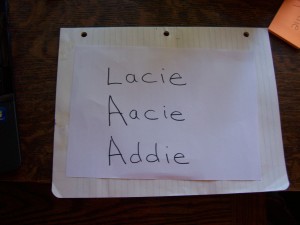Make Way for the Spies
Thus summer’s reading project is a continuation of what began nearly a year ago and continues without an end in sight: World War II. It began with the S.O.E. spies, broadened into the French Resistance and slopped over into the Nazis until I was reading pretty much anything about World War II except the actual military history. Here’s what I think about war: it’s stupid. It’s a bunch of arrested grade school children who don’t care they are destroying the earth and the people on it so long as one person wins and *national security* isn’t breeched. So reading about military strategy has never interested me. It’s appalling the glamour that exists around the military when their raison d’être is to kill other human beings.
Having said that, when something as ugly and deadly as fascism threatens what we think of as freedom, there is something poignant and compelling about the courage of people who would rather die fighting than let such brutal dominance move in on them. As soon as I say that I think of Magda Goebbels who poisoned her six children before her husband shot her and himself. I can understand the two adults preferring some control over their imminent deaths but Magda’s reasoning about her children was that they were better off dead than growing up in a world without National Socialism, that is to say Nazism.
Here is the place for a feminist rant but I’ll forgo that because I really want to do a bunch of book reports.
Of all my reading about World War II, my favorite is still Leo Marks’ Between Silk and Cyanide because it was so entertaining and so well written. Then Résistance by Agnés Humbert and Until the Final Hour (also called Hitler’s Last Secretary) by Traudl Jung because I admired both women and because they gave, respectively, a French and German perspective, something I was not used to.
Before I start gushing about the spies, I want to gather my thoughts about why there was a resistance in France in the first place. I noticed that reviews of Matthew Cobb’s The Resistance complained that it was more technical than most readers wanted. I was so well dug into my subject by then that I was gulping down details that would have been overwhelming six months’ earlier. But I liked his simple definition of the Resistance starting with “ordinary people who were angry, humiliated or ashamed. . . who decided to change things.”
In case you aren’t sure what these ordinary French people were angry about, here was the situation: The Nazis had invaded, conquered and occupied France in a matter of about six weeks, fast enough to make everyone’s head spin. The swastika was hanging off the Eiffel Tower. The Germans had requisitioned all motorized vehicles, heating oil, fire arms and most of the food. They had billeted themselves in private homes sometimes allowing the owners to remain, sometimes turning them out. The French were expected to finance the occupiers stay in their country.
France was divided into two zones. The northern half and the west coast including Paris and Bordeaux, was the Occupied Zone administered by the Nazis. In the southern portion of Vichy France –headquartered in the town of Vichy– French officials carried out the administration of Nazi regulations quite willingly. Marshal Henri Pétain, a hero of World War I, was in his 80s when he took over as The Savior of France. A conservative Catholic, he apparently thought that lax moral standards had invited the Nazi invasion. My mother would have loved him–as did many in France.
Not all. While Henri We Have Sinned Pétain was collaborating (his term), less grandiose people built up a resistance. Matthew Cobb writes that the Resistance only numbered about 500,000 people, but other authors have suggested that everyone in France either collaborated or resisted in one way or another. Resistance could be small: pretending to not understand German when approached by a German, wearing the French colors, listening to the BBC (which was illegal as was the radio). It could be medium sized: producing leaflets and tracts and leaving them on subways, cutting telephone cables. It could be large: blowing up bridges, hiding Jewish people, setting up escape routes.
Matthew Cobb describes the structure of the “official” Resistance that tried to corral all the small cells and circuits that spontaneously arose after the Occupation settled in. Jean Moulin, Henri Frenay, Emmanuel d’Astier, among others all had leadership roles within the formal Resistance and all tried to receive De Gaulle’s blessing from where he sat in London saying, “Moi, Je suis La France.” The squabbling that went on between the organizers, the communist resistance, and the British secret intelligence and De Gaulle would be amusing if it wasn’t so exasperating.
Inside S.O.E. by E.L. Cookridge and Resistance by M.R.D. Foot, both of which I read twice, are overviews from a British point of view. S.O.E. refers to Special Operations Executive, a secret operation ordered by Churchill to engage in ungentlemanly (and unwomanly) warfare. It was the Dirty Tricks division of military operations.
Here’s something you can do: find out what Churchill commissioned the S.O.E. to do. It’s three little words and every book jacket, book review, and YouTube documentary can’t manage to avoid repeating it. I am sick of hearing it so I’m not going to repeat it.
And now on to the spies.
 RSS Feed
RSS Feed






